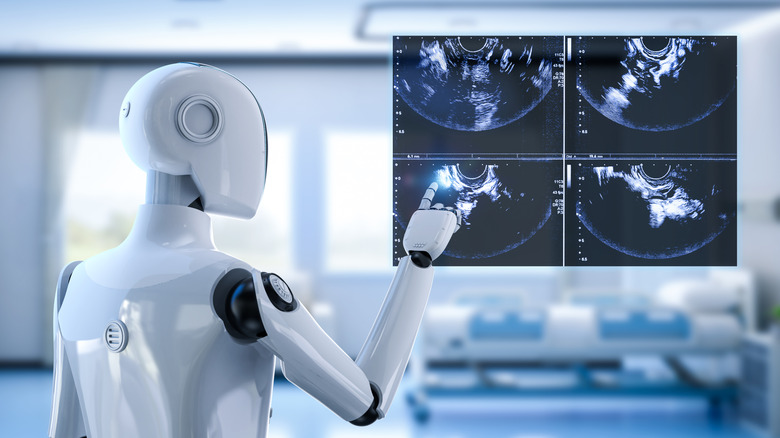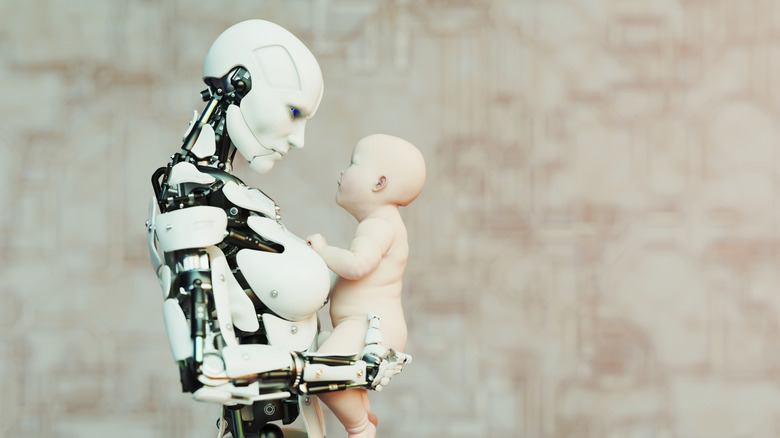China's 'Pregnancy Robots' Are Real: Here's Everything We Know
By 2026, hopeful mothers may be able to use a robot to carry their baby to term. Kaiwa Technology, a company based in Guangzhou, China, is currently working on a "gestation robot," which will be a humanoid robot with an artificial womb that will be able to carry and deliver a baby — all for just $13,900.
This robot surrogate was presented at the 2025 World Robot Conference in Beijing, revealing a full-sized humanoid that can replicate the entire process, from conception to delivery. It sounds far-fetched, but Kaiwa Technology's Zhang Qifeng has confirmed that this has already shown promise in animal experiments (such as one in which researchers grew mouse embryos outside the uterus). In 2017, an artificial womb was able to successfully birth a premature lamb, with the baby growing inside the "biobag" made of vinyl, full of warm water and salt, and with a tube providing nutrients to the growing lamb. However, Kaiwa Technology's humanoid will have to support fertilization, implantation, and a full-term pregnancy, not just partial gestation. Further details are still unknown, leaving some people concerned with the possibilities and ethical issues of this new robot.
The pregnancy robot brings up ethical issues and solutions
As the possibility of a pregnancy robot spread online, people expressed both concern and excitement. Those who are skeptical of the concept have questioned where the eggs come from and whether it's cruel for a baby to be born inside a robot. This is not surprising, since there are currently people who voice opposition to in vitro fertilization, where babies are born outside the human body in a lab. Zhang Qifeng didn't seem phased by the ongoing ethical and legal concerns, however. "We have held discussion forums with authorities in Guangdong Province and submitted related proposals while discussing policy and legislation," he said (via Chosun Biz).
While there is still a lot to learn for these concerns to be addressed, some women are excited about the potential of the pregnancy robot. China's infertility and sterility rate has risen over the years, and this could be a solution to couples that are unable to give birth naturally. Infertility is an increasing issue all over the world, in fact, with about one in five married women reporting difficulty giving birth, according to the Centers For Disease Control and Prevention. Ultimately, this is just the latest in China's advancement in humanoid robots; some of these robots can even use AI to help around the home and have the dexterity it takes to work in manufacturing.

